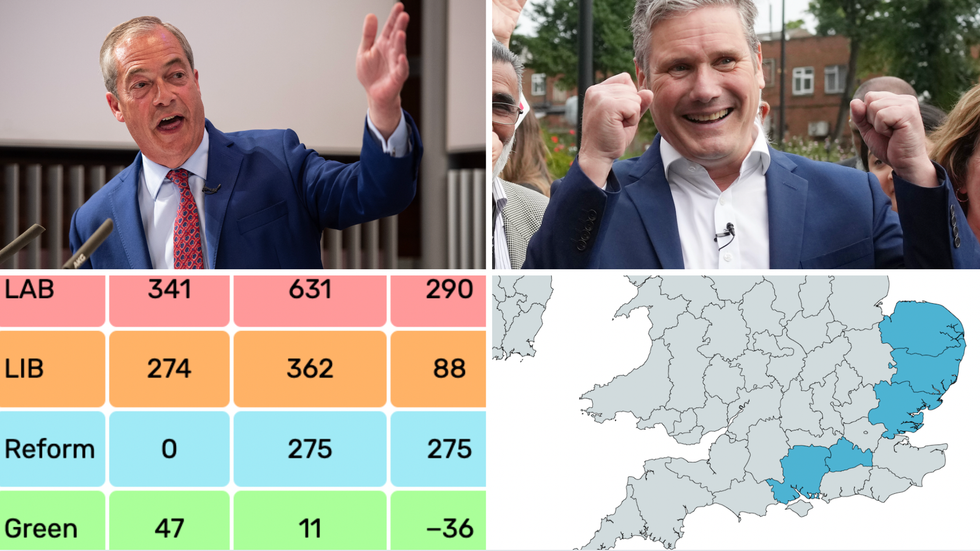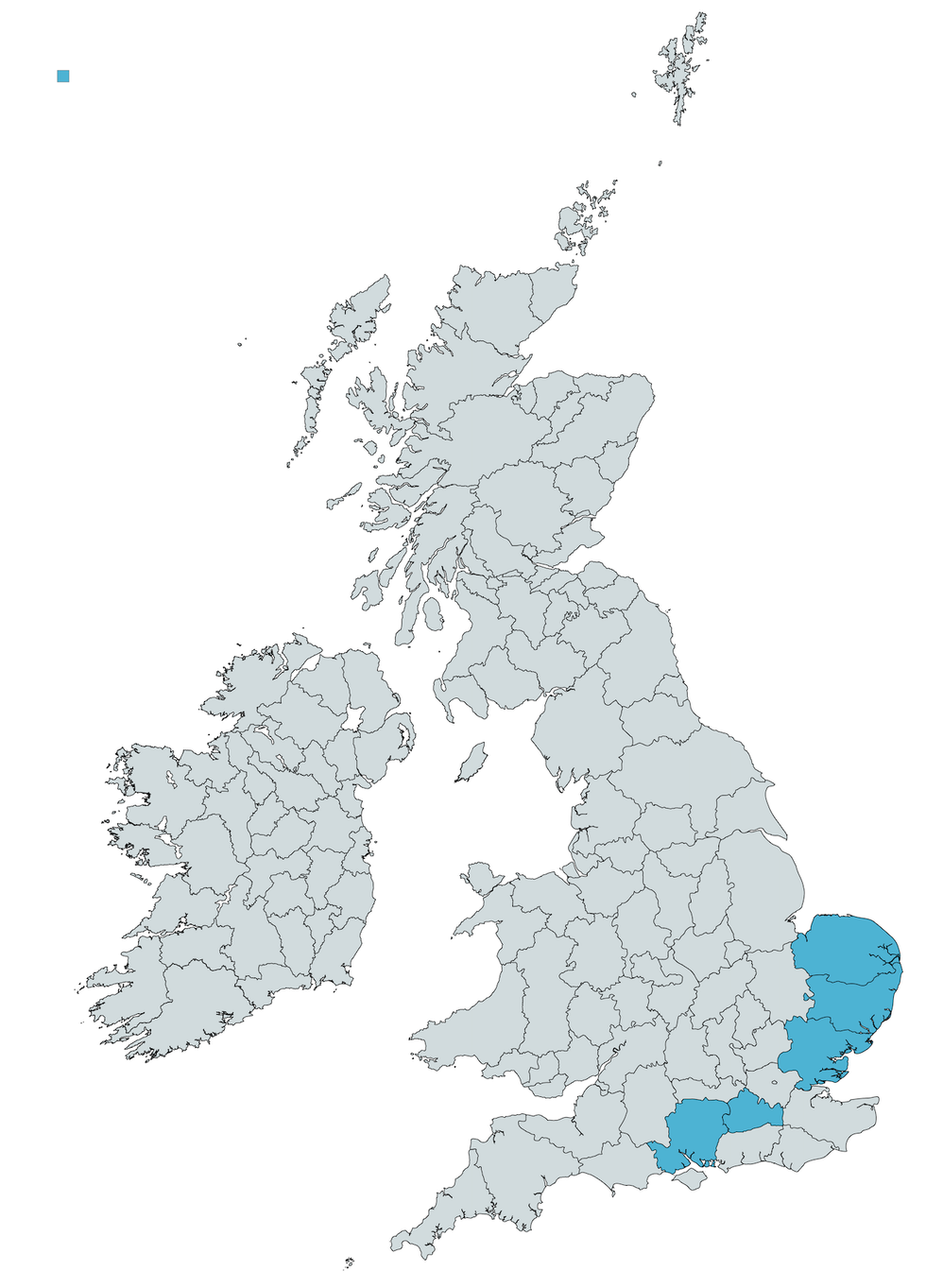Nigel Farage FUMES at 'MONSTROUS' Election cancelling on GB News
GB News
The Conservatives are the main beneficiaries of the election delays as Nigel Farage's party was on track to turn scores of Tory-held seats light blue in May
Don't Miss
Most Read
Trending on GB News
Our exclusive analysis of polling data suggests that the council elections delayed in England under Labour's devolution plans have deprived Reform UK of massive gains.
The Conservatives are the main beneficiaries of the delay as Nigel Farage's party was on track to take swathes of Tory territory at the upcoming elections in May.
It comes after Deputy Prime Minister Angela Rayner announced on Tuesday the councils that were granted permission to delay their elections under Labour's devolution plan to turn 18 two-tier councils in England into unitary authorities.
Eighteen councils requested to delay their elections, but only nine were granted permission, with East Sussex, West Sussex, Essex, Thurrock, Hampshire, the Isle of Wight, Norfolk, Suffolk and Surrey given the go-ahead.
The Councils insist that delaying their elections to May 2026 will buy them time to make the necessary structural changes.
For her part, Rayner said that holding elections for bodies that were due to be scrapped would be "an expensive and irresponsible waste of taxpayers' money".

Nine elections delayed in England under Labour's devolution plans have deprived Reform UK of massive gains, polling suggests
Getty Images/Map Chart/Electoral Calculus
Reform UK blasted the move, accusing Labour of "colluding" with the Conservatives to thwart the insurgent party's rise to power as the delays are in areas where a strong turnout is expected.
Farage did not mince his words on his GB News show on Tuesday night, telling viewers that the "absolutely monstrous" move has effectively "cancelled" their vote.
Does he have a point? Our analysis of the polling data finds clear winners and losers from the council postponements.
Our analysis relies on data from the Electoral Calculus, which looks at current General Election voting intention, rather than polling on local election voting intention.
The pollsters have, however, used the new boundaries from the Local Government Boundary Commission for England (LGBCE) for 2025.
They also looked at how councils actually voted in 2021 (adjusted for new boundaries where applicable) to inform their projections.
As our map shows, if the full 21 county councils, one metropolitan borough, and ten unitary authorities were going ahead as usual, swathes of the UK would have experienced a light blue wave.
The pollsters project Reform would have gained 275 council seats in 2025 if all the elections went ahead as usual.
The Conservatives would have experienced substantial losses, losing 460 seats under the current projection as voters look to defect to Reform in key constituencies.
In Thurrock - the unitary authority in Essex that's delayed local elections for one year - Reform would have had a chance of taking control of the entire council to become the main party in charge.
Farage's party also had a fighting chance of turning Tory-held Norfolk light blue if the election in this county were not delayed.
LATEST MEMBERSHIP DEVELOPMENTS

Farage's party could have swept Essex and turned Tory-held Norfolk light blue, polling data suggests
Map Chart
All told, the Conservatives might have had to form an alliance with Reform in order to retain partial control in seven of the nine councils delayed, the polling suggests.
In all seven of these councils, the Conservatives would have more seats than Reform, but the party would get its first taste of local government power ahead of the next General Election.
Due to the announced delays, the number of Conservative losses would be cut from 16 to 12 councils, the pollsters forecast.
Liberal Democrats might make advances as a result of the delays and Labour could also do better than their relatively poor showing in 2021, though the simple model may overstate possible Labour gains.
It's worth noting that Labour might not gain a significant partisan advantage from the delays to local council elections.
They may gain Durham, Northumberland and Derbyshire, where elections are going ahead, but they might also have gained partial control of East Sussex and West Sussex, where elections are delayed, the pollsters project.
In party terms, the main beneficiaries from the delays are the Conservatives, who keep four councils which they might otherwise have lost.
The main losers are the Liberal Democrats, who have lost the chance of full or partial control in three councils, and Reform UK in two councils.
It must be emphasised that these predictions are very approximate and are only based on Westminster voting intentions.
More accurate predictions may be available nearer to the elections when surveys of local election voting intention are conducted.








